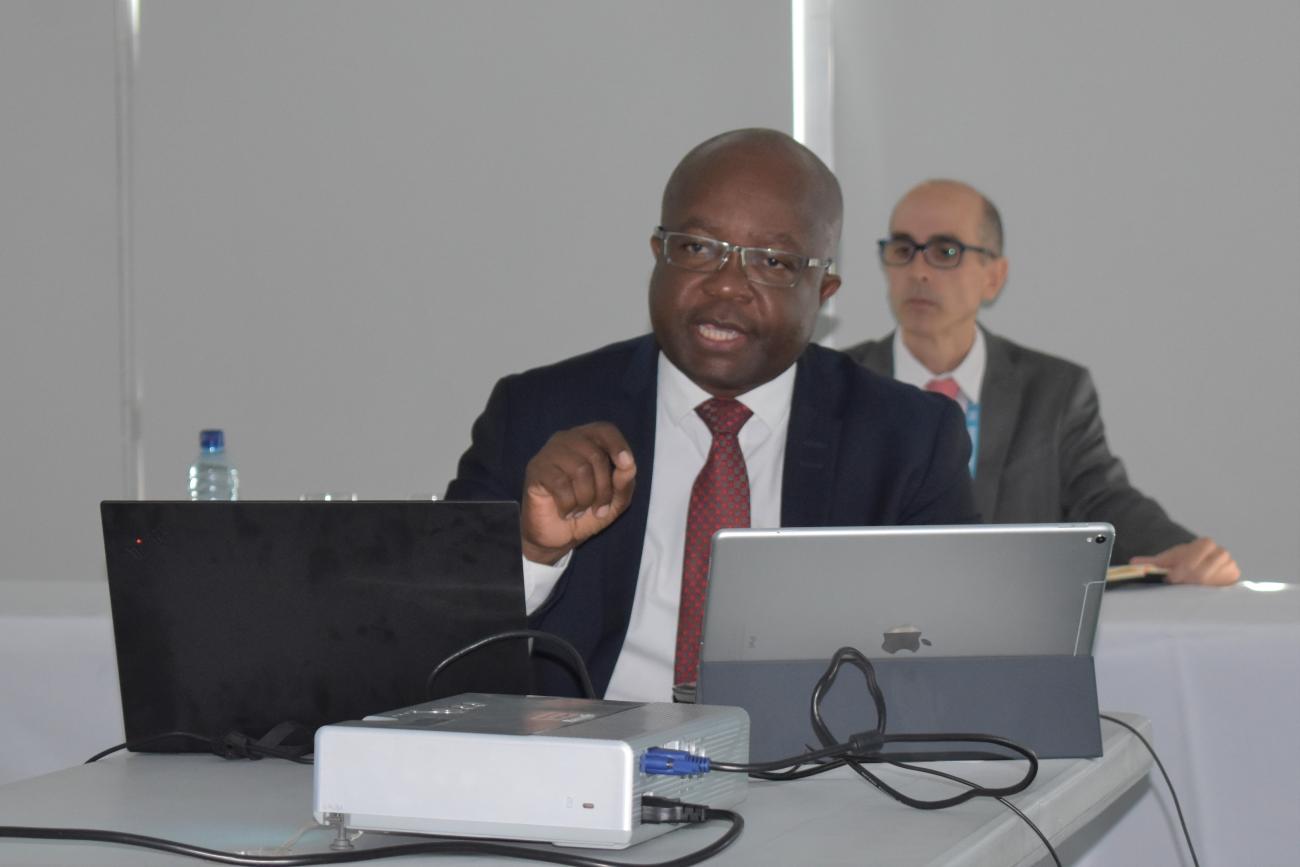The (UN) System in Namibia and the National Planning Commission (NPC) convened a virtual coordination meeting with Development Partners to strengthen Namibia’s national response to COVID-19.The High-Level Meeting was convened to attain a brief overview of Development Partners interventions, to ensure alignment to national priorities and to maintain regular coordination mechanisms for sustainable development.
The world is battling an unparalleled health emergency, and its economic and social ramifications are felt in Namibia too. The UN Resident Coordinator ad interim, Ms. Rachel Odede, commended the Government of the Republic of Namibia for the prompt and proactive action taken so far in response to the COVID-19 outbreak. The UN System in Namibia recognizes the serious threat that the on-going COVID-19 global outbreak poses to the country.
“The UN response is holistic and integrated, from the health sector, to the socio-economic and environmental sectors, and laying foundations for mid and long-term recovery, resilience and keeping track on the Sustainable Development Goals (SDGs),” she said.
Due to the evolving nature of the novel coronavirus, the UN Country Team in Namibia have re-programmed USD 3’725’530.00 across the four pillars of the United Nations Partnership Framework (UNPAF) 2019-2023 to ensure the continuity of current projects and minimise the impact on public health and socio- economic well-being. In addition, the UN has mobilized USD 1,85 million to support the COVID19 national response plan in the health sector; has deployed 30 staff to assist with the response and started coordinating with the Government the implementation of a Socio-Economic Impact Assessment of COVID19.
COVID-19 has infected approximately 3 million people and claimed about 200 thousand lives worldwide. The African continent recorded 22 thousand confirmed cases and 900 deaths. A number of African countries, including Namibia imposed a range of prevention and containment measures against the spread of the pandemic. Most importantly, “basic preventative measures by individuals and communities remain the most powerful tool to prevent the spread of COVID-19", Odede said.
Honourable Obeth Kandjoze, Director General of the NPC stated, “the prime objective of government is to prevent infections and to protect every life and everyone present in the country.” He noted that the easing out of the lock-down depends on the clinical evidence available” He also stressed that Namibia has lost approximately 1/3 of its economic output during this period.
The Government has taken effective measures to support the country’s health sector, socio-economic recovery and the impact of COVID -19. Kandjoze, reminded the assembly that,” the overall coordination of the emergency response is premised on decision making at Cabinet headed by His Excellency the President, facilitated by the Office of the Prime Minister fed by two coordinating sub-cluster Committees led by the Ministry of Health and Social Services as well as the Ministry of Finance”.
Reference was made that clear structures on managing of resources are in place, although NPC interfaces with Development Partners to facilitate and support the coordination through agreed mechanism and dialogue to foster a coherent and coordinated response to flatten the curve of the pandemic in the country.
In briefing the Partners on the Government Covid19 response undertaken to date, Kandjoze explained that, “His Excellency the President declared the State of Emergency on March 17th ,2020. This was followed by a Lockdown of the two Regions, Khomas and Erongo, with the aim to contain and prevent further spread of the virus.
He explained that,” beyond the May 4th,2020, the country would continue in a State of Emergency for another four or five months to allow Government flexibility to facilitate a stage-manage re-opening of the economy with strong emphasis on clinical evidence each step that we roll back into and as we exit the various Lockdown stages with trickling in of activities especially for sectors that earn the country foreign currency for provision of medical services as well as Heath, Education, Primary and Secondary sectors.”
In the Health sector, he intimated that,” challenges remain in Personal Protective Equipment, medical equipment and testing kits. The country has not rolled out testing to desirable levels in terms of the curve philosophy. He added that Government has introduced stimulus package consisting of wage subsidies, emergency income grants to individuals that fall under categories that relate to loss of income.”
He advised that, “should the Development Partners community consider supporting Government, primary considerations should remain Health, Education and Socio-Economic sectors to complement Government’s efforts where there are shortfalls.” He added that financial assistance is required to fund the High-Level Panel of Experts constituted between the University of Namibia and the Namibia University of Science and Technology in terms of research initiated to understand the impact of COVID19 on the Namibian economy.
The development partners who weighed in on the discussion were the EU Ambassador and EU Delegation, PEPFAR, USAID, CDC, Peace Corps, French Ambassador and French Agency for Development, UK High Commission, Embassy of the Federal Republic of Germany, Embassy of Finland, Consulate General of Switzerland, High Commission of India, African Development Bank, World Bank, KFW Bank, Development Bank of Namibia, Embassy of Japan, Spanish Embassy and the Chinese Embassy




















